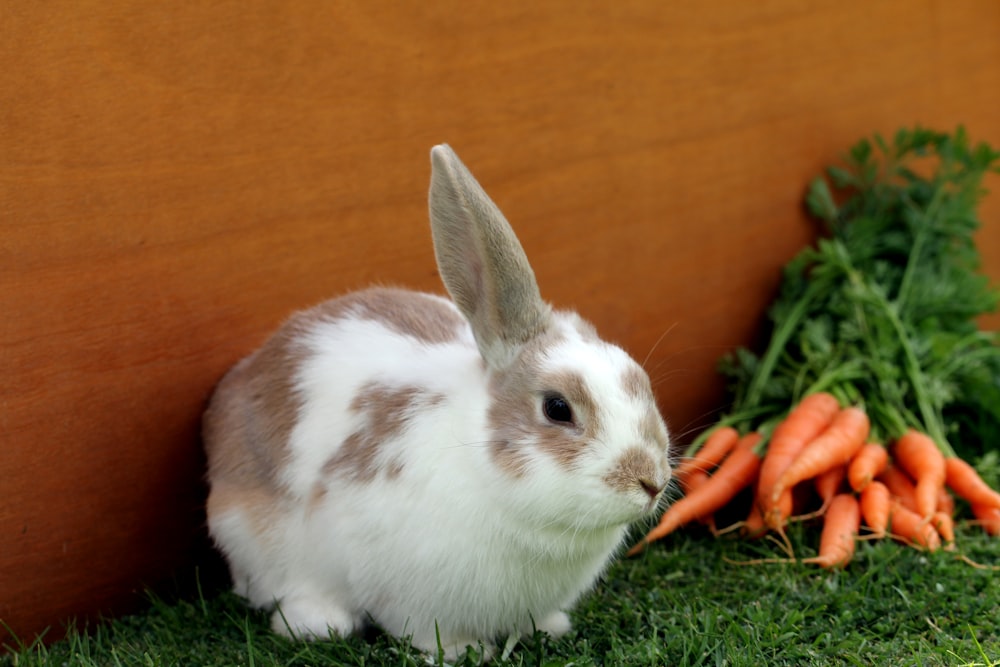
If you’ve ever dreamed of owning a pet bunny, you’re not alone. It may be a sweeping generalization, but it is logical to conclude that most people have positive associations with a cute and cuddly bunny rabbit. After all, the young ones and the “young once upon a time” have fond memories of Little Peter Rabbit in nursery rhymes or the Easter Bunny who brings lots of sweet treats.
At some point, you may have considered owning a cute, furry, rabbit. What holds you back might simply be that you don’t know enough about the pros and cons of having a pet bunny, and that lack of knowledge gives you pause.
Bunnies are social, affectionate, and can be easily trained. If you’re seriously considering a pet bunny, you must educate yourself about their specific care requirements. Below is everything you would need to know about rabbits and how to best care for them:
Why is Pet Ownership Beneficial for You?
The debate over the ethics of living with pets has lasted many years. Some animal activists assert that domesticating animals is unnatural. Though theoretically, humans can provide good homes for animals (and many do), but some who dabble in pet ownership have no clue what they’re doing. In the real world, more animals suffer cruelty, neglect, and abandonment when owners realize that animals cost a lot of money and entail so many responsibilities. Many also disagree with pet ownership, especially in communal living areas like condos.
But on the flip side, many studies have highlighted that owning a pet is actually more beneficial for a human being’s health. A study showed pet owners are said to have better longevity, living longer and with improved quality of life than those without pets. Research highlighted that owning pets helped improve their owner’s well-being by boosting immunity, relieving stress, reducing anxiety, and easing loneliness. Pets provide companionship, especially for socially isolated individuals.
On top of that, pets encourage playfulness and exercise. If you have children, caring for pets fosters a strong sense of responsibility, with young kids growing up to be more level-headed, secure, and active adults. Today, one of the most common pets that can be found in households all over the world are canines (often referred to as man’s best friend), followed closely by felines.
However, dogs and cats are not the only pet options out there. If you are allergic to dogs and cats, have a dog or cat phobia (which is not uncommon), or find these furry pets to be too rambunctious, rabbits may be a great pet option for you. Rabbits are smaller, gentler, and may not require as much attention or care needs as their bigger furry counterparts.

Pros and Cons of Being the Parent of a Pet Bunny
Pros:
1. Enjoy Quiet and Calm
Rabbits are often quiet and calm. They are not as loud or rowdy as dogs or cats may be as they do not bark or meow. Rabbits do not even squeak like mice. However, from time to time, you will hear them thumping the floor. This only happens when they sense danger, are angry or upset at you, or if they are not properly socialized.
2. Trainable
One thing that makes rabbits great house pets is that they are trainable. They are highly intelligent and can even be taught to do tricks.
3. Little to No smell
Rabbits produce little to no smells. They do not give off body odor and their fecal matter does not smell that strong. But, their urine has high ammonia content and may cause their housing to smell foul. Thus, it is important to regularly clean out the litter box to avoid harsh smells.
4. Live Long Lives
In terms of companionship, rabbits are great because they are social animals and love to be petted. Moreover, they have long lifespans with a large purebred rabbit living up to 10 years and a mixed-breed dwarf rabbit living up to 8 years. This means you will be able to spend lots of time with your pet bunny and enjoy their companionship and comfort. Of course, where the rabbit lives, breed, size, and nutrition can influence the bunny’s lifespan.
5. Gentle disposition
Rabbits are not rambunctious and are generally very gentle creatures. They like being petted and stroked. They are not as jumpy as dogs when excited, nor are they going to lash out like cats when angry. This makes them the perfect pet if you are just looking for a companion who is not overly excitable or temperamental. Do note, though, that while these animals like being petted, they abhor being held or squeezed. As prey animals, they may instinctively kick at you if you do this.

Cons:
1. Chew Anything
Rabbit teeth grow like fingernails, getting progressively longer. In order to stunt teeth growth and dull their sharp incisors, they have to continually chew on things. Any overgrowth can cause their teeth to protrude out of their mouth, or even grow inwards, causing discomfort. You must keep away all things that you do not want to be chewed on and provide your rabbit with chomping toys specifically made for gnawing down sharp teeth.
2. Have a Complex Diet
Rabbits have highly specific and complex nutritional requirements. Contrary to popular belief, they cannot eat carrots alone. Moreover, they cannot just keep on eating kibble alone as cats or dogs can. Their sensitive digestive systems require that they be fed grass hay, leafy greens, kibble, and a few treats. Having the correct balance between these food items will provide your rabbit with the daily nutrients it needs to live a healthy life.
3. Are Quite Fragile
Rabbits are a lot more fragile than dogs and cats. Their bone structure is more delicate. This means they are prone to injury when mishandled. Squeezing too much may hurt them. This makes them a difficult pet to keep around children who have tendencies to poke, pull and squish. However, you can still raise a bunny with your family provided your children are supervised and informed on proper bunny care.
Moreover, you can opt for the cuddliest and most domestic bunnies which are easier to care for. Some rabbits are a lot easier to get along with than others. These cuddlier breeds are the Harlequins, Rex, Lionheads, Polish and Mini Lops. Breeds like the Dutch, Jersey Wooly, Chinchilla, and Himalayan are also easy-going and a joy to handle.
4. Can Be Expensive
Buying a rabbit from a pet store can cost at least 20 US dollars. Although upfront costs may be cheaper than buying a puppy or kitten, the total costs, in the long run, may still be expensive. Considering their special dietary needs, vet appointments, their need for spacious cages, and their fragility, the cost of owning a rabbit can amount to roughly 500 to 800 US dollars annually, or at least, roughly 40 dollars monthly.
Just like cats and dogs, the initial cost of a rabbit will depend on its breed and where you buy it. They are usually cheaper at adoption centers versus pet stores. The American Rabbit and Dutch Rabbit will run you 20-50 US dollars, and the Flemish Giant Rabbit and Harlequin Rabbit will cost you 50-100 US dollars.

How to Properly Care for Rabbits?
1. Provide a Good Habitat
As mentioned, rabbits are prey animals. Leaving them outside to roam freely can leave them at risk of being attacked by predators. Make sure to provide your rabbit with proper housing. Note that rabbits are also temperature sensitive, and they shouldn’t be housed in areas that are too hot. Note that they need at least 12 square feet of space inside their pen. For example, rabbits less than 8 lbs, 24 inches by 36 inches are alright, provided they are let out once a day. But in general, bigger cages are usually better so they have more room to move around and play.
2. Let Them Out Once a Day
As a responsible bunny parent, you must remember to never keep your rabbits in their cages for longer than 24 hours at a time. They should be let out to roam at least once a day for at least one hour. If you have time, you can extend it for three to four hours. The time out is to satisfy the rabbit’s psychological, social, and physical health needs.
3. Work on Training
As previously stated, rabbits are lovely house pets. However, they are only sociable and gentle if they are well-trained. Make sure to start them early on. Expose them to different people so that they are properly socialized. Teach them how to use the litter box as soon as possible to avoid them leaving droppings all over your home.
4. Groom Regularly
Rabbits need regular grooming to keep them cute and cuddly. This is especially true for long-haired rabbits who need to be brushed every day to avoid the accumulation of tangles and knots. Short-haired rabbits need to be brushed once a week. Make sure to do this gently, as rabbit skin is very delicate. If you are unsure, seek help from professional groomers.
5. Provide Love and Interaction
Like all other pets, rabbits need love and warmth. Spend as much time with them as possible. This will help them become more social and open toward you. On days when you will be traveling, it is imperative that you find a rabbit-sitter to look after your pet. You have to keep such pet-sitters informed of the diet of your rabbit, its litter and how to clean the litter box, how long it should be allowed to roam outside, and the proper way of handling it. It is important to also note that rabbits are prone to heat strokes and have very delicate bone structures to ensure that they are given proper care while you are away.
Is Bunny Ownership Right for You?
Owning a pet rabbit can reduce your stress, boost your mood, and improve life. However, remember that these bunnies are also living creatures who deserve care, love, and attention. Can you commit to caring for one? Any pet will also come with significant financial requirements because you need vet visits, food, hygiene essentials, and accessories. Is it within your budget?
Although a pet bunny is a wonderful addition to your home, you must be ready for the responsibilities. It’s not a decision you can be flippant about because this creature will rely on you for care and protection. With that in mind, if you’re not ready to embark on bunny ownership, it’s okay.
There are other ways to elevate your mood and improve your overall quality of life. You can make proactive changes with your nutrition, engage in exercise to boost your spirits, or talk to a therapist to release your emotional and mental burdens. It will also help to take a CircleDNA test as this can give insight into potential mental health concerns that impact your overall health and wellness. And if you do get a pet, taking this genetic test means you’re better prepared to look after yourself so you can enjoy more happy moments with your newest fur family member.







Comments are closed.